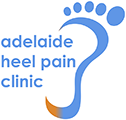If you’re living with heel pain, the shoes you wear play a major role in either easing or aggravating your symptoms. At Adelaide Heel Pain Clinic, we often see patients whose footwear choices directly influence their recovery. Choosing the right shoes for plantar fasciitis can provide immediate relief while supporting long-term healing.
Why Shoes Matter with Plantar Fasciitis
Plantar fasciitis develops when the band of tissue along the bottom of the foot becomes inflamed. This leads to sharp heel pain, particularly in the morning or after long periods of standing. Shoes with poor cushioning or inadequate support increase strain on the plantar fascia, delaying recovery and worsening discomfort.
Key Features of the Right Shoes for Plantar Fasciitis
When shopping for supportive footwear, look for these features:
-
Firm Arch Support – prevents the arch from collapsing and reduces tension on the plantar fascia.
-
Deep Heel Cup – stabilises the heel and absorbs shock during walking or running.
-
Good Cushioning – helps reduce impact on the heel with every step.
-
Wide Toe Box – prevents crowding of the toes, improving balance and comfort.
-
Low to Moderate Heel Drop – slightly elevating the heel relieves pressure on the fascia.
Examples of Supportive Options
Some brands have designed shoes that align well with plantar fasciitis management. For instance:
-
Altra shoes feature a wide toe box and level platform, encouraging natural movement while reducing pressure points.
-
Supportive running or walking shoes from specialist footwear brands can also provide the stability needed for daily use.
The ideal shoe will depend on your foot type, activity level, and whether you use orthotics.
How to Transition into Supportive Footwear
If you’re changing from unsupportive footwear, make the transition gradually. Alternate between your old and new shoes for a few days to allow your feet and calves to adapt. Combine this with calf stretching and strengthening exercises for the best results.
When Shoes Alone Aren’t Enough
While supportive shoes make a big difference, they may not be the whole solution. At Adelaide Heel Pain Clinic, we also offer:
-
Custom orthotics
-
Shockwave therapy
-
Light Force and K-Laser treatments
-
Dry needling and prolotherapy
-
Individual exercise programmes
These options complement proper footwear, helping you achieve lasting relief.
Final Thought
Wearing the right shoes for plantar fasciitis is one of the most effective steps you can take to reduce heel pain and support recovery. Combined with professional podiatry care, the right footwear helps you get back to walking, running, and enjoying life without discomfort.
At Adelaide Heel Pain Clinic, our team can guide you to the best footwear choices and treatment plan tailored to your needs.

